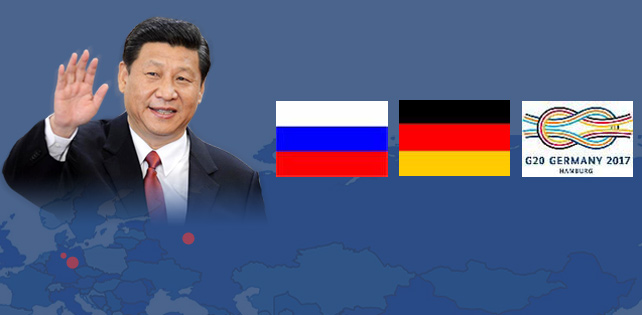China leads global efforts in clean energy expansion
BEIJING — As the development of clean energy hit new records, China, the world's largest energy investor and innovation center, has made stronger-than-expected efforts to accelerate the process.
Fatih Birol, executive director of the International Energy Agency (IEA), on Tuesday lauded China's efforts in the research and development of clean energy, saying "China takes once again the leadership."
China's contribution
On Sunday, China completed in the South China Sea a 60-day trial of mining gas hydrates, commonly known as combustible ice, marking a breakthrough in the search for alternative clean energy resources.
It was announced that the exploration produced over 300,000 cubic meters of gas, mainly methane, with an average daily extraction of more than 5,000 cubic meters of high-purity gas, and a highest daily output of 35,000 cubic meters.
China began its research on combustible ice in 1998, as one cubic meter of combustible ice, a kind of natural gas hydrate, equals 164 cubic meters of regular natural gas.
"What we are seeing is that the natural gas industry is in transformation," Birol said. "We are seeing more and more unconventional gas being part of the total gas mix."
The IEA said Tuesday in its report at the 22nd World Petroleum Congress held in Istanbul that as the world's largest energy investor, China saw a 25 percent decline in coal-fired power investment last year and is increasingly driven by clean electricity generation and networks, as well as energy efficiency investment.
The agency expects China to overtake Europe within a few years in terms of energy-efficiency investment, as the Asian country has replaced Japan as the world's top investor on energy research and development as a share of the GDP.
Meanwhile, a BP report said China has topped the world in renewable energy production.
"China continued to dominate renewables growth, contributing about 40 percent of global growth - more than the entire OECD (the Organization for Economic Cooperation and Development) - and surpassed the United States as the largest producer of renewable power last year," BP chief economist Spencer Dale said in the report.
Global hydro power rose 2.8 percent in 2016 from a year ago, with more than 40 percent of growth from China, according to the latest BP Statistical Review of World Energy released Monday.
In the meantime, global nuclear power went up by 1.3 percent, or 9.3 million tons of oil equivalent, with China contributing almost all the growth, the report said.
The BP data showed carbon emissions in the world rose slightly by 0.1 percent in 2016, while in China, the emissions fell 0.7 percent from a year ago.
"China's carbon emissions are estimated to have actually fallen over the past two years, after growing by more than 75 percent in the previous 10 years, and some of the improvements reflect structural factors that are likely to persist," Dale said.
"Today China is number one in terms of the wind, number one in terms of the solar and number one in terms of the energy-efficiency effort as well as in nuclear power," Birol told Xinhua.
Global development
Energy investment around the world amounted to $1.7 trillion in 2016, accounting for 2.2 percent of global GDP, the IEA report said, noting that spending on the electricity sector worldwide exceeded the combined spending on oil, gas and coal supply for the first time.
"The share of clean-energy spending reached 43 percent of total supply investment, a record high," the report said.
The spending on energy declined for the second year in a row, as increased spending on energy efficiency and electricity networks was more than offset by a continued drop in upstream oil and gas spending, it added.
"Our analysis shows that smart investment decisions are more critical than ever for maintaining energy security and meeting environmental goals," Birol said in the report.
"As the oil and gas industry refocuses on shorter-cycle projects, the need for policymakers to keep an eye on the long-term adequacy of supply is more important," he said.
The report expects global upstream oil and gas investment to stabilize in 2017. "However, an upswing in US shale spending contrasts with stagnation in the rest of the world, signaling a two-speed oil market," it noted.
"At the same time, the oil and gas industry overall is transforming itself by delivering large cost savings and focusing more on technology development and efficient project execution," the report said.
















